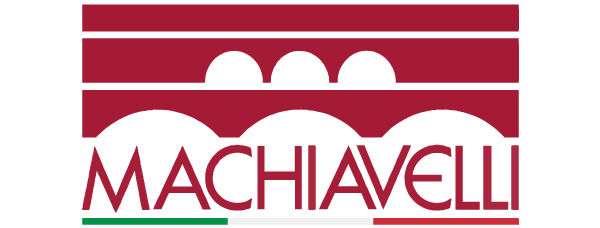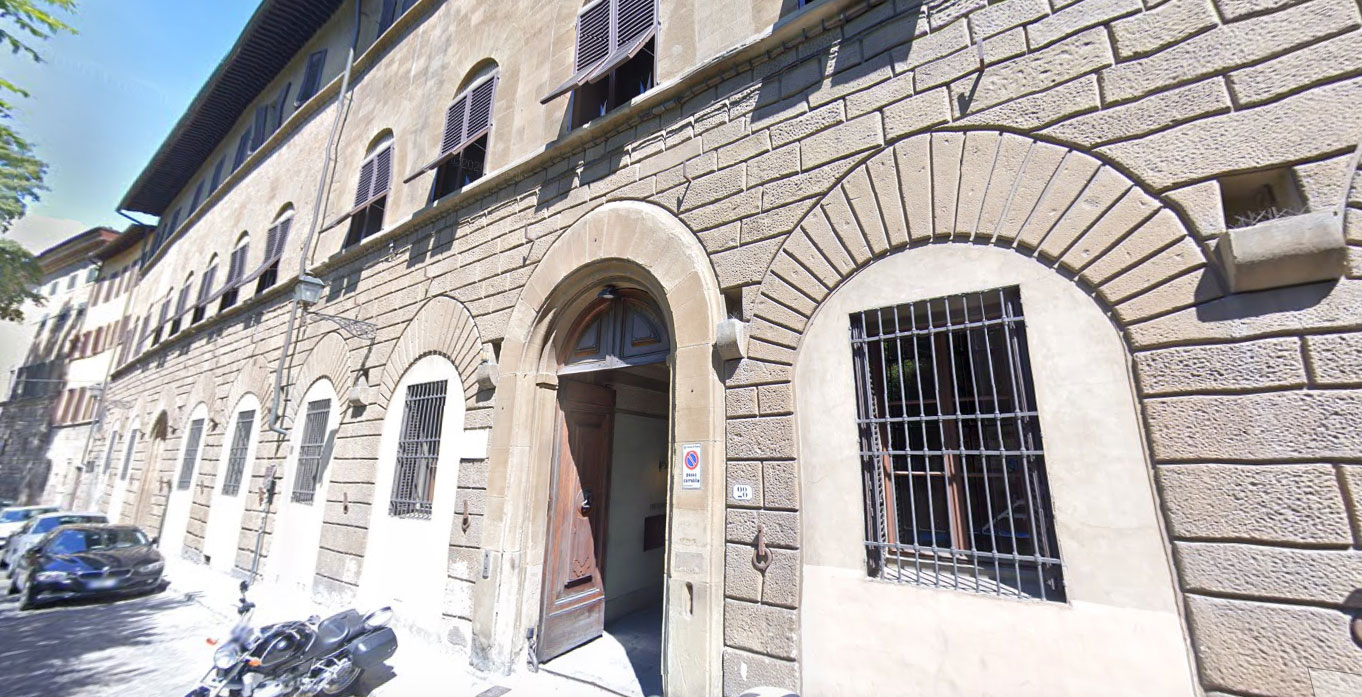Centro Machiavelli
A consultancy and training organisation by the Region of Tuscany.


Consultancy & Training
The Machiavelli Centre, founded in 1978, was accredited as a consultancy and training organisation by the Region of Tuscany in 2008 and obtained the ISO9001 and ISO29990 quality certifications. The Centre operates within EU programmes and in training activities. In the last 10 years realised several multilateral and mobility projects (both as coordinator and partner) within EU Programmes like Lifelong Learning and Erasmus+ with partners from AT, BE, BG, FR, DE, GR, ES, IE, NL, NO, PL, PT, RO, SE, SK, TR, UK.
Some projects were focused on state-of-the-art technology for education and VET (ELLVIS, VET4VIP, ALL4WELL, MOLLVIS). Through these projects have been implemented several software for PC and app for mobile devices as support for training activities. In 2012 CM obtained the European Language Label for creating a innovative software-application for an English language learning program for blind and visually impaired learners.
Two main fields of activity
The Centre has two departments corresponding to its two main fields of activity: Language School for Foreigners and Training Agency. The latter, involved in this project, has been set up with the following aims:
- Promote training paths and models of professional development, functional to local needs, which contributes to the preservation and development of innovation in very traditional sectors.
- Foster methodological and technological innovation in training, through the creation and testing of innovative projects.
- Promote collaboration and integration among different subjects involved in high quality education - Promote the training of trainers, teachers and educators in general Regular staff of Centro Machiavelli consists of 12 full-time personnel (part-time personnel is hired according to need and varies from one semester to another). The number of students approximates 700 - 800 in each school year.
Current projects
- DigiVET, digitally enriched curriculum bridging formal and non-formal VET. Started in Nov 2018, it is in phase of implementation. Duration 2018-20.
- TEE, Traditions, ethics and etiquettes, started in Oct. 2018. Currently we are collecting materials in each partner country. Duration 2018-20.
- DREAM, Development and Run-test of and Educational Affective Model, Erasmus+ KA2 EDU, in cooperation with Florence University, Malaga University ES, L’Horizon FR, ECTE GR 2016-19. The project is addressed to teachers and educators of pre-primary and primary schools (0-6 and 6-10 years old children). Promoted by Florence University, the project is implementing an innovative pedagogical approach for developing an Educative Model based on the principle of Affective Education. It aims to create a positive learning environment, which can be perceived by pupils as inclusive and comfortable, ensuring a good education for all. Adopting an affective perspective in education can influence positively all future relationships between Educative Institutions and pupils, fostering their familiarization with the System, limiting in this way possible disaffections and conflicts.
- REMINT, Refugees and Migrants Inclusion Toolkit Erasmus+ KA2 VET, in cooperation with IC VERDI pre-primary and primary public school in Florence, EELI GR, CLP UK, INCOMA ES, Studiefrämjandet SE 2017-19. REMINT aims to share the best practices adopted by each partner to improve asylum seekers, refugees, and migrant’s social skills, helpful for their correct inclusion in hosting countries, through the use of methods based on the experiential learning theory. To achieve this goal, the project is creating a Toolkit-Handbook based on Experiential Methods.
- 3D LAB, Making with brain, technology and hands, Erasmus+ KA2 Youth, in cooperation with Metallo Nobile Jewelry School in Florence (IT), EST Wadowice (PL – Applicant) and CTI (GR) (2017- 2019). Main objective is to foster growth of informal learning environments which provide opportunities for young people to engage in craft making with support of 3D digital technology.
- YOU-ROPE, Youth Rites of Passage in Europe, Erasmus+ KA2 Youth (See further details about this project in the next section).
What are the members skills?
─ Mr Mario Paiano ─
Head of VET and EU Projects Dept. He began to work at CM in 2008 with the aim to develop the EU Projects Dept and the Vocational Training area. He has long experience in management of EU mobility and multilateral projects, with more than 25-year experience in these fields: EU Project Management, Research on educational needs both at local and the European levels; Planning, transnational coordination, financial management, quality control, monitoring and evaluation of EU projects.
─ Ms Giuseppina Falsini ─
Managing Director of Language Dept., she holds a Degree in Foreign Languages. She coordinates the Italian language courses and carries out managerial and administrative functions. She has dealt in particular with the administrative and financial management of EU projects, Funds of the Ministry for Research and University. Also, she participated to the development of the EU projects realized and participates to the realization of the current projects.
─ Mr Gino Tozzetti ─
Teacher at Centro Machiavelli since 1999, he is trainer for teachers of Italian as a second language. He holds a Degree in Liberal Arts and has an excellent knowledge of English, Swedish and German. Also, he participated actively to the realization of the EU projects ELLVIS and VET4VIP. Within these projects he was one of the main actors for the recording and cutting of the Italian sound files for creating the software for the English language learning for blind. Also, he participates to the realization of the current projects.
─ Mr Cristiano Sanna ─
Obtained a bachelor in 2001, he worked as freelance journalist/reporter until 2005. In 2006 he holds a PhD in anthropology. In 2007 holds contracts as researcher at Bologna and Milano Universities. In 2008 he starts to work as Italian language teacher and trainer for trainers. In 2010 he becomes head trainer for the Grundtvig course Teaching Languages through Movie Making, developing the related method, awarded with the European Label for the Languages in 2011. Now he teaches Italian language and works at the EU projects.
─ Ms Giulia Moretti ─
Political Sciences University Degree; Post-graduate specialization for Competences Balance at University of Florence, Psychology Dept; Designer of VET activities; Expert of learning outcomes evaluation and competences certification; School/Career Guidance Counselor; Junior EU project designer: Erasmus+, LLP; Consultant for management and control of the QM for training organizations (ISO9001–EA37Education). Today she participates to the realization of the current national and EU VET projects.
The Activities
First, it shall be emphasized that the methodology for teaching Italian language at CM includes reading, as one of the main “living” language learning tool. Comments and discussion (especially for advanced levels) of what is readed, is a very effective way to improve language and communication among all students during the “conversation time” planned everydays during Italian language lessons at CM.
A very effective reading experience at CM was done in Spring 2013, within the “All’improvviso Dante 100 Canti per Firenze” reading performance at which anyone can adhere for reading the Dante’s Divine Comedy in the main squares of Florence. Some of our foreign students from several countries participated actively to this initiative. It was a great experience that involved teachers and students for four months in preparing the performance, by reading exercises, pronunciation, translation, communication, etc. A video can be viewed here.
Also, CM realised and is still realising project based on reading and narrative methods as effective tools in the VET processes:
- YOU-ROPE, Youth Rites of Passage in Europe, Erasmus+ KA2 Youth, in cooperation with LabCom University of Florence, Psiterra RO, ETCS ES, ECTE GR (2017-19). Overall aim of the YOU-ROPE project is to prevent youth problems through a more effective, integrated and coordinated approach to education and social inclusion, to be realised by adopting a model "youth and community development through rites of passage" and by integrating interventions during critical points in children’s transition from childhood to adulthood. Narrative and reading methods are some of the main tools used for the story telling of rites of passage in use among young people.
- LLP LdV TOI project PaTiE, Psychodrama as Tool in Education (2013-15), which aimed to provide an innovative training program for educators to improve their skills by acquiring psychodrama techniques such as are role play, reading, narrative, working with symbols, mirroring, etc. as tools for improving the learning pathways. These skills give a real contribution to socialise and communicate, contributing to growth. These skills can be profitably applied in the daily language teaching activities to foreign people. Partners: ES, GR, IT, PL.
The Reading Toolkits
Starting from the results gained by comparative survey and taking intoaccount what defined within the Pedagogical Framework.


